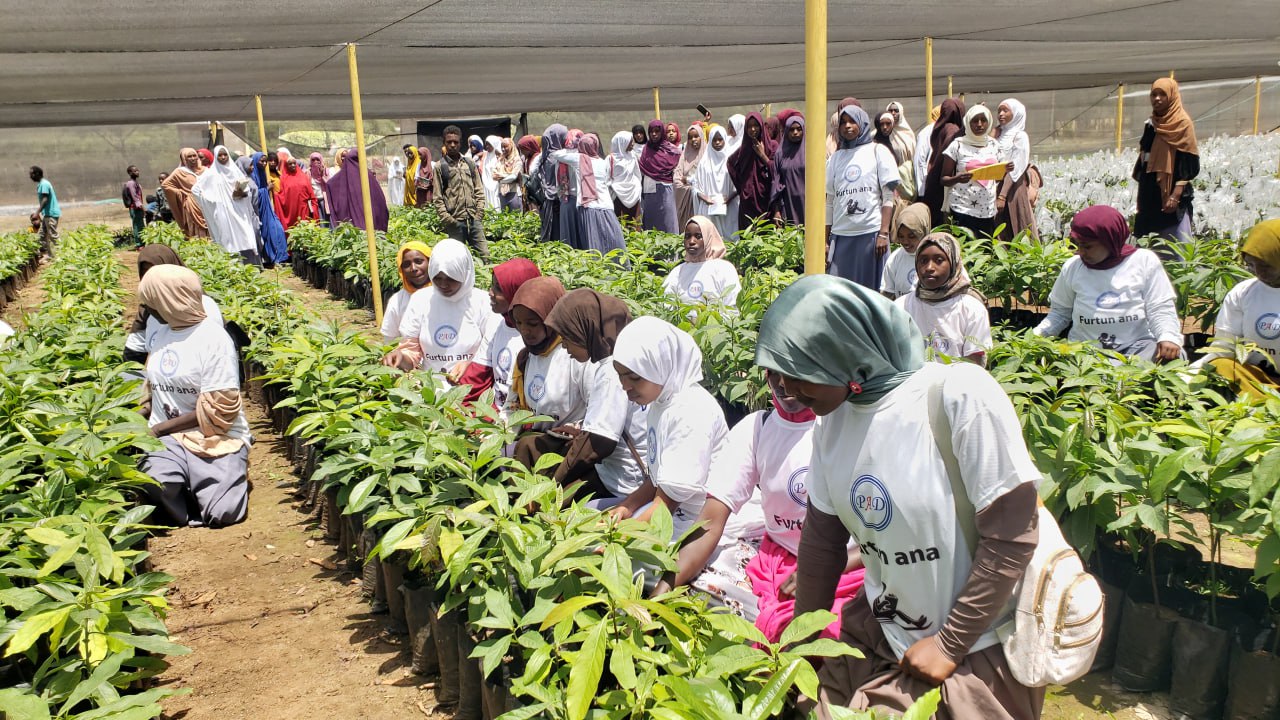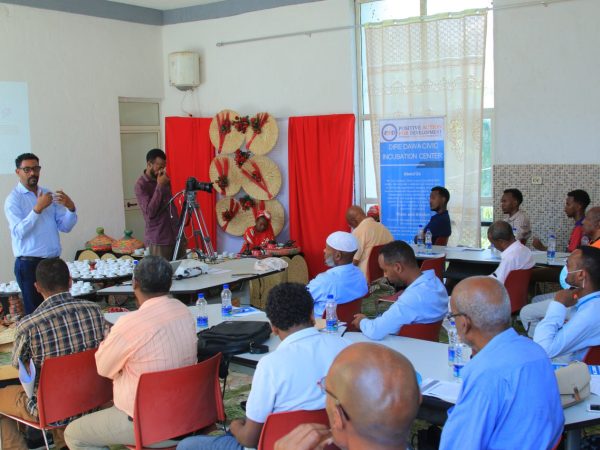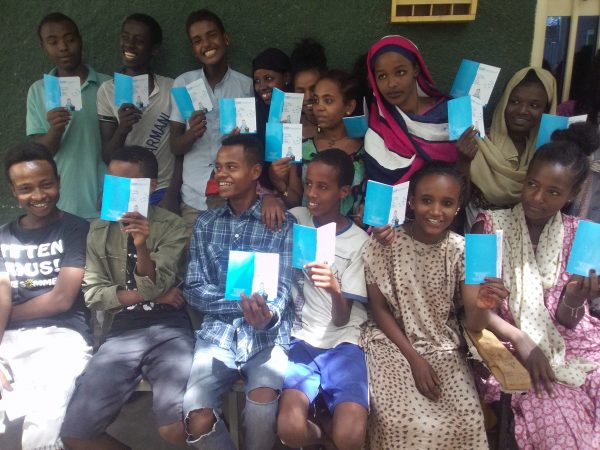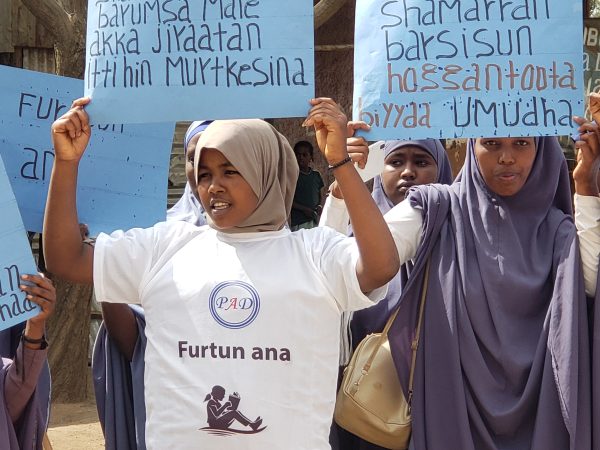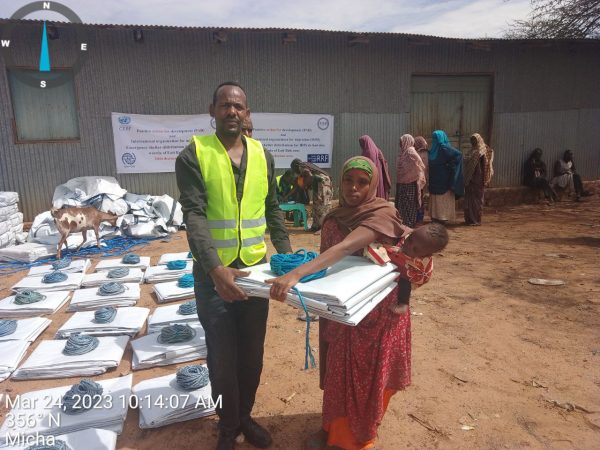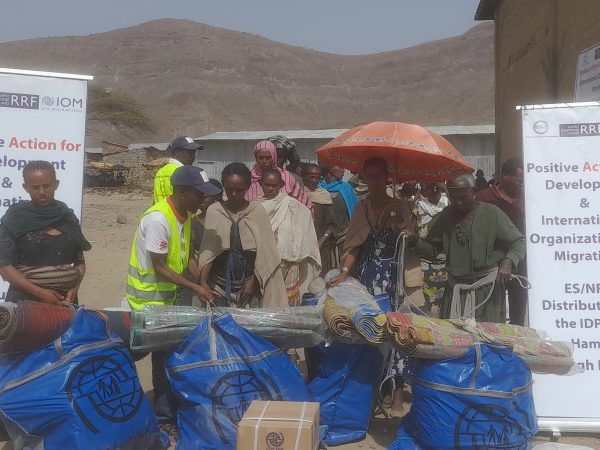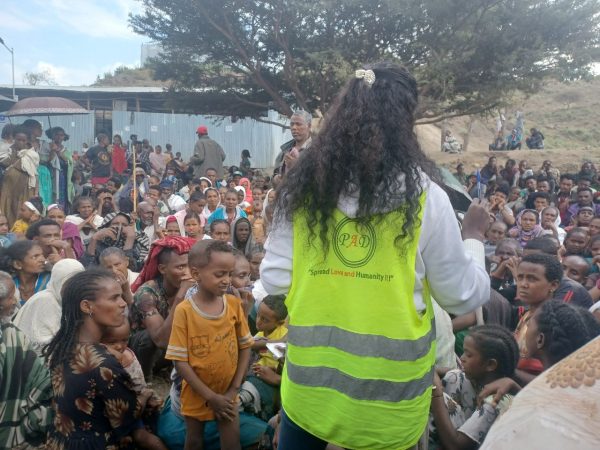Environment and Climate change mitigation is at the heart of Positive Action for development (PAD) intervention. PAD ensure all its projects are environment and climate change sensitive while working towards addressing environment and climate change challenges through supporting a recycling programs.

The project’s overall objective is to promote community-based green livelihood interventions that contribute to environmental protection and climate change mitigation, doing so the project aspire to the livelihood of vulnerable youth and HHs in the climate change affected parts of the country. The main project outcome is to ensure climate change mitigation while increasing sustainable green livelihood for unemployed youth and HHs in the climate change affected parts of the country. The project environmental friendly green livelihood business model converts khat wastes into briquettes that are supplied in huge quantities to a private sector operator which uses these outputs to produce a final product for sale in the export market. These final briquette products shall also be sold as clean fuel for cooking and heating. Briquettes can be produced with limited skill and can replace natural firewood and raw biomass, providing users with a low-cost fuel that emits less smoke and offers higher calorific (energy) value.
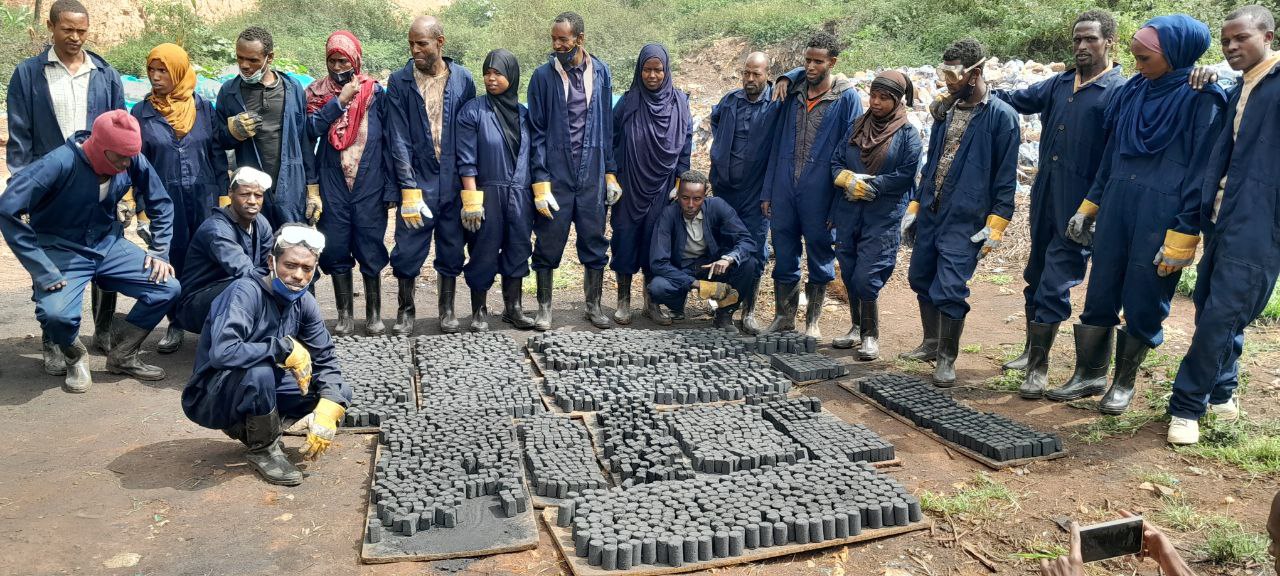
In the model, beneficiaries collect the khat wastes from Households, Khat Rooms, Street Shops and Khat Market centers and municipalities for a fee. One or more Government entities shall participate in this model as public partners. These public partners are expected to subsidize the waste collection activity in the form of direct payment per kg of collected wastes or final product produced by the cooperatives. Production Process involves: Collecting the khat waste; Drying; Charcoaling (Carbonization); Grinding and Packing, during the first phase of operation. The private partner will then take the processed waste from the cooperatives by paying reasonable price per kg and shall process them further into briquettes and/or exports them as unfinished intermediate products for further processing. The private partner shall also invest in research and development (R&D) in order to improve production efficiency, product quality and also in diversifying product ranges.
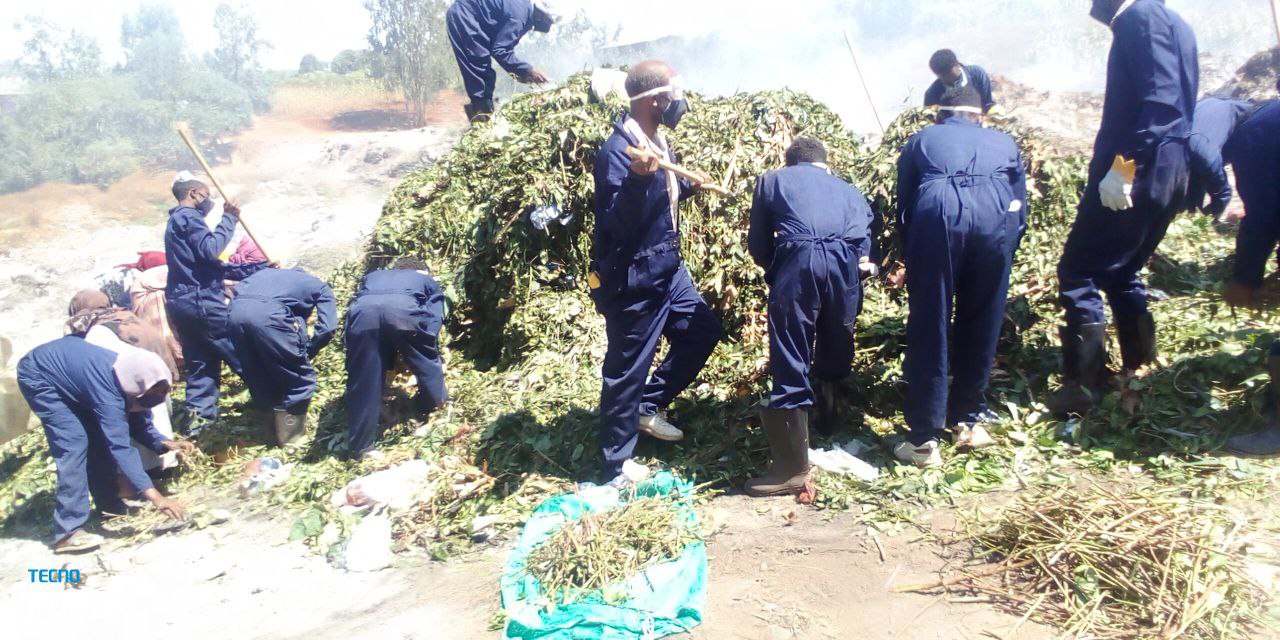
The high numbers of youth including immigration from migration-prone areas of Eastern Oromia have resulted in population increase in Aweday and Kombolcha Weredas, which resulted in aggravated socio-economic impacts. These areas are also known to be international hub for khat, from where huge amounts of khat are exported primarily to Somalia and Djibouti every night.
According to the local customs office, only the taxable amount of khat, entering and leaving Aweday and Kombolcha Weredas reaches around 350 to 400 tons per day. From these tons of khat, 230 to 260 tons are thrown as waste from Households, Khat Rooms, Street Shops and Khat Market centers. And it is just customary to see khat wastes everywhere in the city: along road sides, ditches and open areas along the streets. This situation is not only affecting the cleanness or esthetic value of the weredas, but it is also serving as breeding sites for pests and insects, releasing bad odor and clogging ditches and drainages.
